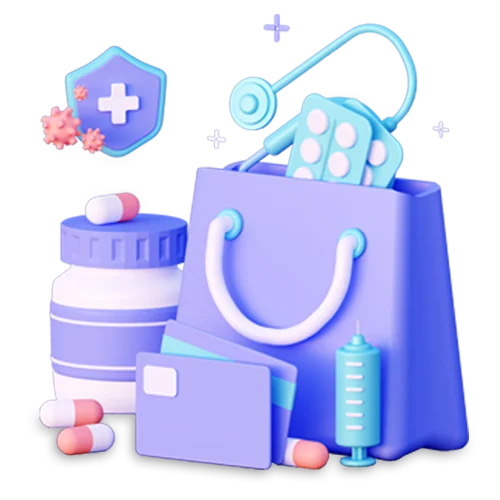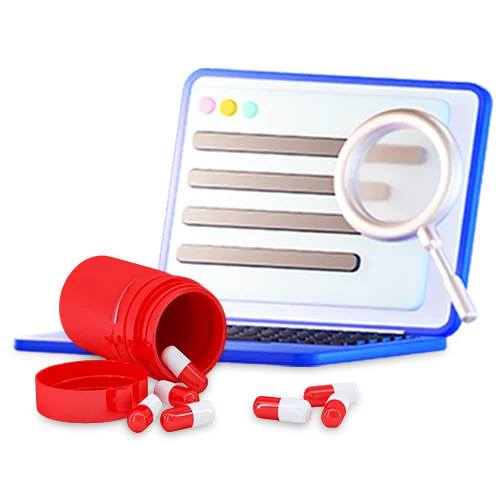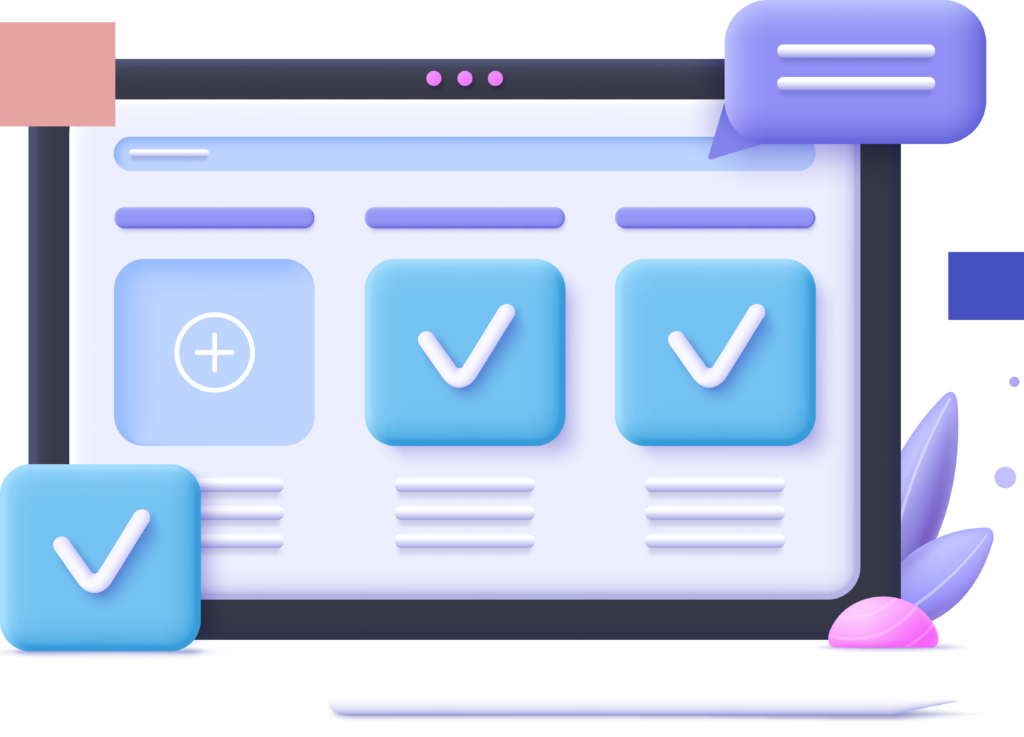What are the Major Quality Challenges in the Pharmaceutical Industry?
Superior quality and customer satisfaction are the most critical aspects of pharmaceutical manufacturing. Patients rely on medicines for their well-being, expecting high-quality drug compositions that are safe, effective, and free from contamination or defects.
Quality is the key factor that builds patient trust in pharmaceutical products. Any deviation from quality, efficacy, or safety standards can lead to regulatory recalls, financial losses, and reputational damage for pharmaceutical manufacturers.
To address these challenges, companies implement a robust pharma quality management system to maintain compliance, improve process efficiency, and mitigate risks.
Pharmaceutical manufacturers must proactively prevent and manage quality issues caused by non-compliance, process modifications, human errors, and regulatory changes. This is where Pharma QMS Software plays a pivotal role.


How Does Pharma QMS Software Help Address These Challenges?
Understanding the significance of a QMS in pharma, deploy advanced pharmaceutical quality management software like QualityPro to maintain high-quality standards across products, processes, and services.
QualityPro is a best-in-class QMS software for pharmaceutical manufacturing industry that enables companies to:
- Develop a risk-based CAPA process
- Manage non-compliance issues through structured documentation
- Ensure employee adherence to standardised processes
- Streamline audit management and meet regulatory requirements
A comprehensive pharma quality management system like QualityPro supports organisations in sustaining quality across the product lifecycle, from drug development to post-market surveillance.
Your path to better quality management starts here
Explore the Unmatchable Features Pharma QMS Offers

Efficiently handle non-conformance (NC) issues such as contamination, quality deviations, packaging defects, and compliance breaches. Identify root causes and apply corrective and preventive actions (CAPA) to prevent recurrence… Read more
Track, manage, and resolve customer complaints related to drug side effects, poor packaging, expiry dates, and other product concerns, ensuring continuous improvement and customer satisfaction… Read more
Automate training processes, create schedules, and track employee knowledge on GMP compliance, safety protocols, pharmaceutical workflows, and quality management in pharmaceutical industry. Maintain precise training documentation and evaluate employee competency… Read more
Establish a structured change control process to document, evaluate, review, and manage modifications in pharmaceutical quality management systems, ensuring regulatory compliance and operational efficiency… Read more
Manage critical Standard Operating Procedures (SOPs) related to patient safety, drug testing, risk response, equipment maintenance, and pharmaceutical workflows to ensure regulatory adherence… Read more
Create, store, and track pharma QMS documentation, including drug safety protocols, chemical specifications, regulatory records, and quality reports. Enable real-time collaboration for improved productivity. Read more
Identify and mitigate risks affecting product quality and patient safety. Implement proactive quality management systems in pharma to drive continuous process improvement and ensure regulatory compliance… Read more
Ensure seamless internal and external audits with centralised storage of critical compliance documents. Conduct timely regulatory, GMP, and drug quality audits to maintain industry standards… Read more
Don’t wait! See how various organisations streamlined quality with QualityPro
Features of QMS Software for Pharmaceutical Industry
Efficiently handle non-conformance (NC) issues such as contamination, quality deviations, packaging defects, and compliance breaches. Identify root causes and apply corrective and preventive actions (CAPA) to prevent recurrence… Read more
Track, manage, and resolve customer complaints related to drug side effects, poor packaging, expiry dates, and other product concerns, ensuring continuous improvement and customer satisfaction… Read more
Automate training processes, create schedules, and track employee knowledge on GMP compliance, safety protocols, pharmaceutical workflows, and quality management in pharmaceutical industry. Maintain precise training documentation and evaluate employee competency… Read more
Establish a structured change control process to document, evaluate, review, and manage modifications in pharmaceutical quality management systems, ensuring regulatory compliance and operational efficiency… Read more
Manage critical Standard Operating Procedures (SOPs) related to patient safety, drug testing, risk response, equipment maintenance, and pharmaceutical workflows to ensure regulatory adherence… Read more
Create, store, and track pharma QMS documentation, including drug safety protocols, chemical specifications, regulatory records, and quality reports. Enable real-time collaboration for improved productivity. Read more
Identify and mitigate risks affecting product quality and patient safety. Implement proactive quality management systems in pharma to drive continuous process improvement and ensure regulatory compliance… Read more
Ensure seamless internal and external audits with centralised storage of critical compliance documents. Conduct timely regulatory, GMP, and drug quality audits to maintain industry standards… Read more
Unlock the Exceptional Benefits of a QMS in the Pharma Industry
- Enhanced Business Processes – Optimised workflows and tailored interfaces improve efficiency.
- Regulatory Compliance – Ensures adherence to GMP, FDA, and ISO quality standards.
- Improved Quality Control – Real-time monitoring for swift issue resolution.
- Customer Satisfaction – QMS for pharma provides a structured complaint resolution system.
- Cost Savings – Reduces rework by identifying quality issues early.
- Customer Growth & Retention – Maintains consistent product quality, attracting new customers.
- Competitive Advantage – Demonstrates a commitment to quality management in pharmaceutical industry.
- Data-Driven Decision-Making – Enables informed decision-making through comprehensive analytics.
- Employee Engagement – Fosters a culture of quality management and accountability.
A well-implemented QMS Software for the Pharmaceutical Industry ensures regulatory compliance, operational efficiency, and superior product quality, helping manufacturers build trust and maintain a competitive edge in the industry.

“Just one click, and you are one step closer to a transformation”
Know right away how QualityPro can transform your business
FAQs
A Pharmaceutical Quality Management System is a structured framework of processes, procedures, and responsibilities designed to ensure that pharmaceutical products consistently meet quality standards and regulatory requirements. It encompasses quality along all aspects of production, from raw material procurement to final product distribution, ensuring safety, efficacy, and compliance.
In the pharmaceutical sector, a QMS is vital for:
- Ensuring consistent product quality and patient safety.
- Facilitating compliance with stringent regulatory standards.
- Streamlining processes to enhance operational efficiency.
- Identifying and mitigating risks associated with product development and manufacturing.
- Promoting continuous improvement through systematic monitoring and evaluation.
QualityPro facilitates the identification, documentation, and analysis of non-conformances through its integrated NC & CAPA Management module. It enables organisations to determine root causes, implement corrective and preventive actions, and monitor their effectiveness, thereby fostering a culture of continuous improvement and compliance.
Absolutely. QualityPro is designed to be scalable and flexible, accommodating the needs of pharmaceutical companies ranging from small enterprises to large multinational corporations. Its modular structure allows organisations to tailor the system to their specific requirements and expand functionality as needed.
Implementing QualityPro involves several key steps:
- Needs Assessment: Evaluating the organisation’s specific requirements and objectives.
- System Configuration: Customising QualityPro’s modules to align with organisational processes.
- Data Migration: Transferring existing quality data into the QualityPro system securely.
- Training: Providing comprehensive training to users for effective system utilisation.
- Validation: Ensuring the system operates as intended and complies with regulatory requirements.
- Go-Live: Officially launching the system within the organisation.
Post-implementation support is also provided to address any issues and ensure smooth operations.




